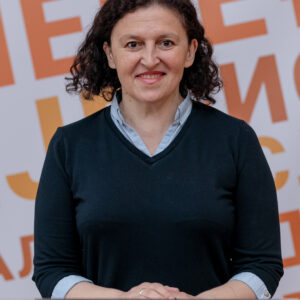
RESEARCH TITLE
Joint Actions for Inequalities in Healthcare Envisaged by 2017 Agenda, within the Third Programme of the EU Activities in the Field of Healthcare (2014-2020)
RESEARCH FIELD
Healthcare, law
RESEARCH SUBJECT
Vulnerable groups’ improved access to healthcare and appropriate social services.
PROBLEM
Work Package 8 (WP 8) of the Project provided an overview of the fields in which health-related inequalities are present when it comes to the access to healthcare and appropriate social care services. In this field, equality sometimes requires for the provisions to be unequal, i.e. adjusted to take into account the different needs that people may have, as opposed to the “one size fits all” approach.
The WP 8 of the Project dealt with the following issues: a) the main dimensions of unequal access to healthcare and appropriate social care services in Europe; b) structural barriers of healthcare system that cause inequalities in access to the services; c) the interventions that have proven to be effective in alleviating the impact of the social exclusion process in creating inequalities in access to healthcare services; d) stumbling blocks in improving the policies and programmes that favour implementation of such interventions; d) the process of change necessary to diminish these obstacles.
RESEARCH
The WP 8 was aimed at identifying priorities in each participating country, when it comes to diminishing inequalities in access to healthcare and appropriate social care services. In this sense, through the activity by the Institute of Public Health of Serbia “Dr Milan Jovanović Batut”, Institute of Social Sciences and the Vojvodina Institute of Public Health, Serbia has mapped the priority bottlenecks in access to the aforementioned services, defined the key barriers that hinder the access to healthcare services of vulnerable groups of population and decided on the methods by means of which these barriers could be removed.
It was assessed that there has been a number of vulnerable social groups that may have problems in accessing healthcare and social care services. Among these, a particularly vulnerable group is that of persons older than 65 who are exposed to domestic or community violence.
RESULT
The Project developed a potential path to supporting the elderly exposed to violence in their families or communities, and their access to healthcare and social care services, as well as to screening for violence that would be performed in these systems.
This path would include the following interventions in the system: collecting experiences and best practices from other countries; developing of the screening protocol based on the present national situation, but also based on the already existing experiences and knowledge (Index of suspicion of elderly abuse, and other relevant collected tools), as the minimum set of data, adjusted to the situation in Serbia, but also applicable to other situations; educating healthcare personnel for implementation of the protocol; introducing the screening service in the nomenclature of healthcare services in the primary healthcare. The Project also proposed indicators of the success of the action.

